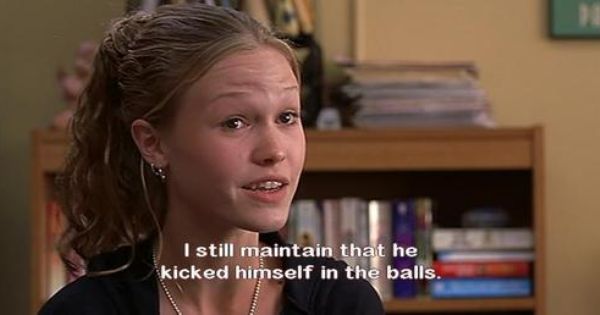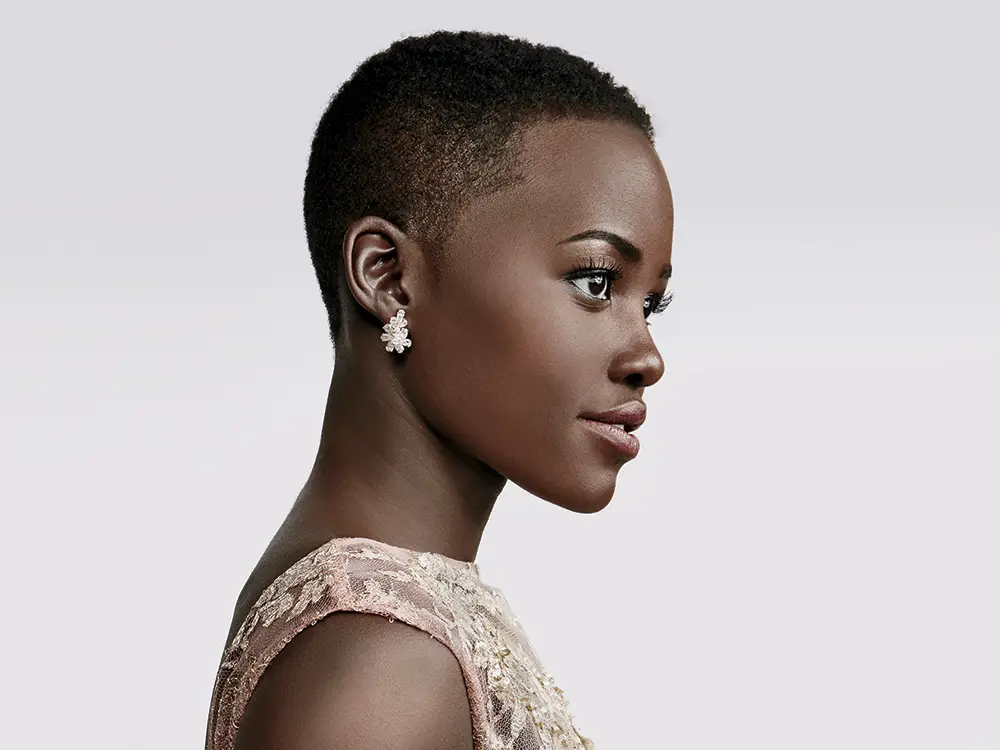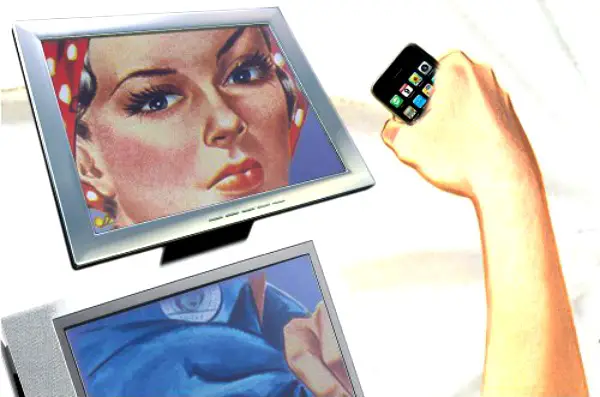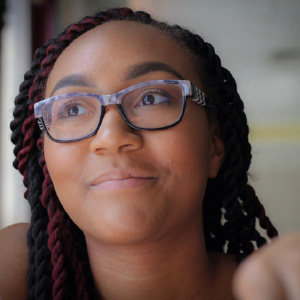I was raised by feminists. My mother and father both made it their mission to ensure that I was aware of my potential as an individual, regardless of the restrictions society had waiting for me because of my gender.
Growing up, my perception of the world was different from most girls my age because of the lack of female companions in my life.
Before I was old enough to attend school, I spent a lot of time at home with my uncles, so playing videos games and sports all day seemed normal to me. Even the main female example in my life, my aunt Cookie, defied gender roles, so when it came time for me to find friends in school, I felt I had more in common with boys my age than girls.
The thing about being the token girl in a group of guys was that life became a competition. Every day was a new opportunity to outshine my male friends academically, physically and socially, and, while it took extra effort to get noticed, the challenge was the most attractive part.
I had to keep up with them on the playground, in the classroom and at home when we played video games and football in the backyard, all while wearing a skort and making sure I didn’t ruin my hair.
Fortunately, the boys I grew up with never acknowledged my gender as a barrier in our relationship. They never made me feel like I was less capable or weaker than them, so I was always confused when I would go home and watch certain female figures on television. I felt that they weren’t like me at all, or, if they were like me, they always seemed to be the outsiders among other girls.
Common Misconceptions About Women in Leadership
Women who lead in popular culture have almost always been portrayed as being aggressive douchebags with no heart. Movies and television shows promote this bogus idea that the only way to basically tame a shrewish lady boss is to throw a man into her life because love solves all the world’s problems.

I have a problem with this idea because it paints a picture for young girls that makes love a necessary attainment to cure misery. It also suggests that women shouldn’t lead because of the emotional instability that comes with a lack of a male figure to balance, or I would dare say, control her. Many women find themselves sacrificing otherwise female attributes as they make their way up the corporate scale, which is unfortunate. In reflecting on the typical woman leader stereotypes I have come across, there are three that stand out and deserve to be addressed in regard to women’s representation.
First, that women are not assertive enough to hold leadership positions. (Pffft.)
Second, that female leaders must act like men to gain respect (yet they are often respected less for being too aggressive).
And third, that a woman must choose between loyalty to the home and loyalty to her job. (I don’t believe any woman holds a singular job in this world. If that were true, the world wouldn’t run as smoothly as it does because one accurate female stereotype is the gift of multitasking. Imagine if a woman decided she was only going to be a mother? That would mean her duties as a friend, an associate and a fixer-upper are forfeited, leaving more people suffering than you would think.)
Stereotypical Female Roles of the ’90s and Early 2000s
When I think of female-lead movies and TV shows of the ’90s and early 2000s, the “damsel in distress” or “longing lover” stereotypes come to mind first, but that doesn’t necessarily mean that proper role models weren’t being cast.
Nonetheless, the sexist/misogynistic mindset that many of the directors and producers of these movies and shows held were often deeply rooted in the stereotypical female roles they created.
This left young girls like me growing up thinking that they can’t be a CEO because everyone will hate them since women bosses are overly emotional. Or that they have to either use their sex appeal to rise above in corporate settings or settle for shit pay at the bottom. Or that women can’t create or pioneer or innovate because a woman that is smarter than a man in the same field is seen as less desirable. Or that a woman must be a housewife and, if she chooses to do otherwise, she can’t balance motherhood and work.
In all of these cases, the woman is expected to sacrifice her personhood for the comfortability of the men in her life, and that is where the writers failed. For a while, female roles were subjected to these strict boxes, leaving young girls with little to work with in the mimicry department. Thankfully, in the midst of all the sexism, we were awarded a few gems in the lead woman aisle.
The millennium was an interesting transition time in American society, as female characters that supposedly broke societal rules were becoming more prominent on television. Among the princesses and posers who were lost in the spell that we call love, women like Katarina from “10 Things I Hate About You,” Letty from “Fast and Furious” and Galleria from “The Cheetah Girls” were redefining what it meant to be a woman. Now that I think about it, Letty and Kat do fall into the spell of love in the end, but what separates them from many others is that love didn’t alter their personality or interfere with their purpose.

Katarina was seen as undesirable by most men in “10 Things” because of her “aggressive” demeanor, when, in actuality, Kat was just a strong-minded girl with ambitions who refused to take anyone’s crap, regardless of their gender. Letty’s character managed to be one of the boys without running into the problem of hypersexualization that perhaps Megan Fox’s character in “Transformers” did.
Galleria’s feminist quotes are still circulating the internet, proving that she was an example to many young girls for how they should be expected to be treated by men.
She reached for the stars and never allowed anyone to get in her way. In the first movie, Galleria did have a love interest, but her love story didn’t distract from the purpose of the movie and she never once made it seem like she needed his love in order to be happy or fulfilled. She was fine and dandy without him. At one point in the movie, she even suggests that respect is the most important component of a relationship, saying, “If he can’t respect my art, he can’t have my heart.” Galleria was way ahead of her time.
Empowering Contemporary Female Roles
Although we were blessed with these female role models, lately, the amount of positive female characters and the variety of occupations, ethnicities and backgrounds that are now represented deserve recognition.
Movies like “Wonder Woman,” “Moana” and “Hidden Figures” are redefining womanhood in positive ways, my favorite being “Hidden Figures” because of its portrayal of not only women, but black women as brilliant mathematicians while uncovering a narrative we believed to have been attributed to the white man for so long.
Moana’s adventurous spirit has opened doors for young girls who are also willing to get dirty and break some rules to get the job done. She does so with little to no help from any male character and the movie pushes the importance of the maternity. Her grandmother’s heavy influence and the villain being a woman are interesting and important choices.
Lastly, the positive feedback “Wonder Woman” has received from both genders proves that the need for women’s representation in pop culture is valid. Media has portrayed this idea of women as being dainty, helpless, over emotional and submissive so that, with the rise in representation of strong women in pop culture, you would think that men and women wouldn’t agree on the necessity of better representation of female stereotypes, but it seems that both genders have had enough.
I inquired on Facebook to get responses from friends regarding the topic and I was most surprised about the positive male feedback I received. One guy suggested that adding variety to the representation of women in media and pop culture also contributes to the improvement of restrictive and non-inclusive beauty standards that dominate our society.
Another said that since people are complicated and women are people, portraying complicated characters, regardless of gender, is essential for women to be a part of the human experience. He said, “complicated characters are remembered, and to be remembered is to have an impact.”

Representation is important because the way young girls that become women grow to shape their perceptions of themselves is based on the stereotypes and roles of women they are exposed to at a young age. All types of representation matters. It is empowering and encouraging to see someone portrayed in the media that reminds you of yourself.
Representation is important because it gives the viewer hope that they, too, can achieve what their pop culture role model has achieved based on similarities in their situations, appearance, setbacks, etc.
Pop culture is a mirror for society, and when young girls look in the mirror but can’t seem to see anyone that resembles who they feel they are or who they aspire to become, that is troubling and discouraging. With a wider variety of women presented in pop culture, women off screen are less limited regarding their roles in society. Ultimately, young girls should be able to look at their television screens and find at least one woman who is like her in some way, whether that be in looks, personality, situation or purpose.














[…] Source link […]
[…] a look at women represntation in the media article link […]
[…] https://studybreaks.com/culture/women-representation-media/ (Article) […]